
List of Designated Free Zones in UAE | Dubai | Sharjah
Table of Contents
Related Articles


Sugar Tax Reform Will Crush Small UAE Drink Brands

The Impact of CARF on UAE Crypto Traders | Ready to Report FTA

Let's Talk
Sign Up For Free Consultation
Designated Free Zones in UAE
The UAE is renowned for its cutting-edge technology and prosperous economy, supported by well-structured tax systems designed to foster development. In addition to these strengths, the UAE has implemented special measures to attract and retain foreign investors. One of the key strategies involves the creation of free zones, which are specific areas designated by the government to draw foreign investment, stimulate economic growth, and encourage business activities. These free zones offer various incentives and benefits to businesses, making them an attractive option for investors.
Are you curious about what these designated free zones are and how VAT regulations apply to them in the UAE? This blog will provide you with comprehensive information on everything you need to know.

UAE free zones are designated areas offering businesses tax exemptions, 100% foreign ownership, and streamlined regulations, making them a magnet for global entrepreneurs. Whether you’re launching a startup or expanding an enterprise, understanding “what are UAE free zones” is key to unlocking their benefits. These zones, like Dubai Multi Commodities Centre (DMCC) and Jebel Ali Free Zone (JAFZA), provide cost-effective setups, world-class infrastructure, and access to global markets.
With over 40 free zones across the UAE, each caters to specific industries, from tech to logistics. For example, Dubai Internet City is ideal for IT firms, while RAK Free Zone suits manufacturing. By choosing the right free zone, you can save on taxes, repatriate profits, and bypass customs duties. This section answers the burning question, “Why do UAE free zones matter?”—because they empower businesses to thrive in a competitive, tax-friendly environment. Ready to explore which free zone aligns with your goals? Let’s dive into the complete list
What are Designated Free Zones?
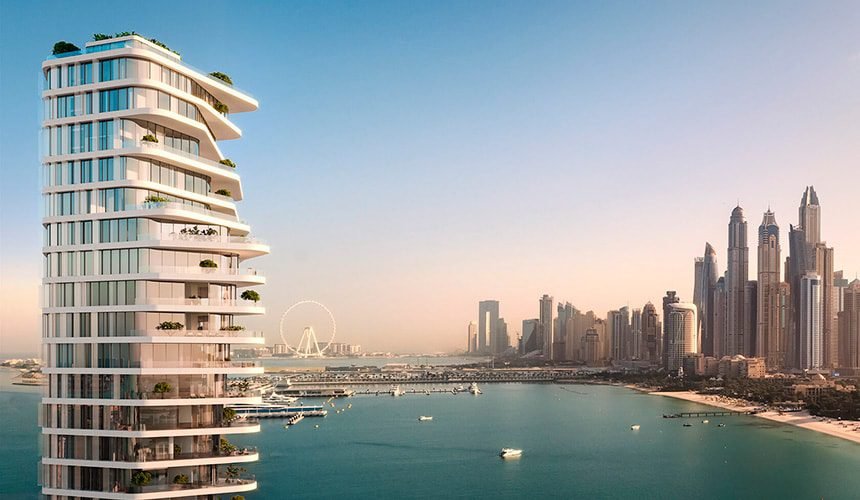
Designated Free Zones in the UAE are specific geographic areas established by the government to attract foreign investment and stimulate economic growth. These zones designed under the UAE Federal Decree-Law No. 8/2017 on Value Added Tax offer a business-friendly environment with various incentives and benefits to facilitate international trade and business activities.
Key features of Designated Free Zones include tax exemptions, full foreign ownership rights, simplified business setup processes, customs privileges, and advanced infrastructure. Additionally, these zones often cater to specific industries, providing tailored support and facilities to meet the unique needs of businesses in sectors such as technology, media, healthcare, and logistics.
Benefits of Designated Free Zones
Designated Free Zones in the UAE are specially designed to attract international investors and businesses. Here are some key benefits:
- Tax Exemptions: Businesses operating within these zones often enjoy significant tax exemptions, including corporate tax, personal income tax, and import/export duties. These exemptions can result in substantial cost savings, enhancing the profitability of businesses.
- 100% Foreign Ownership: In designated free zones, foreign investors can own 100% of their businesses without the need for a local partner. This full ownership provides greater control over business operations, strategic decisions, and profit distribution.
- Simplified Business Setup: Setting up a business in a free zone is typically more straightforward and quicker compared to other areas in the UAE. The registration and licensing processes are streamlined, often with dedicated support services to assist investors through every step, reducing bureaucratic hurdles.
- Customs Privileges: Companies in these zones benefit from customs privileges, such as exemption from import and export duties, which significantly lowers the cost of bringing goods into and out of the country. This is particularly advantageous for businesses involved in manufacturing, trading, and logistics.
- Repatriation of Profits and Capital: Investors can repatriate 100% of their profits and capital without any restrictions or additional taxes. This ensures that they can fully benefit from their investments and easily transfer funds back to their home countries.
- Advanced Infrastructure: Free zones offer state-of-the-art infrastructure, including modern office spaces, warehouses, and logistics facilities, tailored to support various types of business operations. Additionally, many zones provide access to high-speed internet, advanced telecommunication services, and robust security measures.
- Sector-Specific Zones: Many free zones are tailored to specific industries, such as technology, media, healthcare, logistics, finance, and more. These sector-specific zones provide a specialized environment with industry-focused support services, networking opportunities, and facilities designed to meet the unique needs of businesses in those sectors.
- Streamlined Immigration Procedures: Free zones often offer streamlined visa and immigration procedures for employees and their families. This can include faster processing times, longer visa durations, and simplified application processes, making it easier for businesses to attract and retain international talent.
- Business Support Services: Free zones frequently provide a range of business support services, including legal, financial, and administrative assistance. These services can help businesses navigate local regulations, manage their finances, and handle administrative tasks more efficiently.
- Networking Opportunities: Being part of a free zone community offers valuable networking opportunities with other businesses, industry leaders, and potential clients. Many free zones host events, workshops, and conferences to facilitate connections and collaborations among businesses.
How to Identify a Designated Free Zone in the UAE?
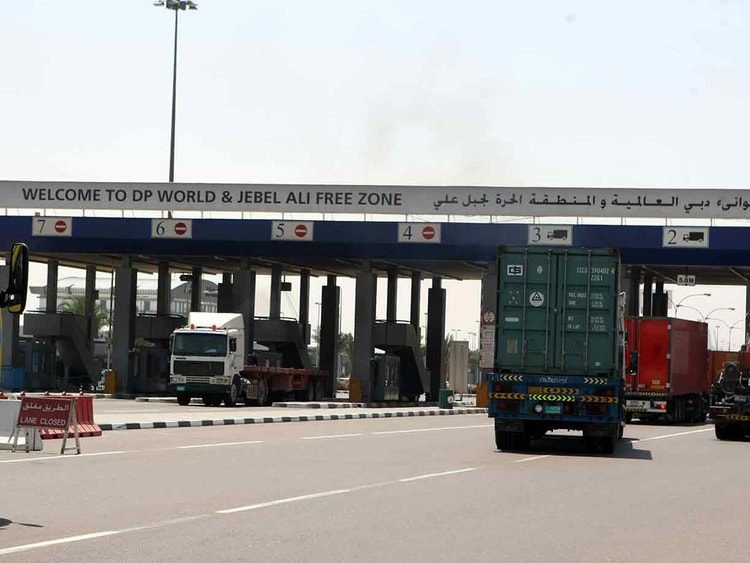
Identifying a Designated Free Zone in the UAE involves understanding the criteria set by the government and recognizing the specific characteristics that distinguish these zones. Here are some steps and tips to help you identify a designated free zone:
- Official Government Listings: The UAE government and its respective emirates maintain official listings of designated free zones. You can visit government websites, such as the UAE Ministry of Economy or the individual emirates’ economic development departments, to find updated lists of free zones.
- Regulatory Bodies: Designated free zones are often governed by specific regulatory authorities. For example, Dubai has the Dubai Free Zones Council, which oversees all free zones in Dubai. Checking with these regulatory bodies can confirm the status of a free zone.
- Free Zone Authorities: Each free zone has its own governing authority responsible for managing and regulating activities within the zone. Visiting the official websites of these authorities can provide detailed information about the free zone, its incentives, and its designation status.
- Location and Industry Specialization: Designated Free Zones are strategically positioned in key areas and often cater to specific industries. To ensure efficient operation, these zones are equipped with stringent security measures and customs controls to oversee the entry and exit of individuals and the movement of goods. Understanding a free zone’s geographic location and industry specialization can provide insight into its designation. For example, Dubai Internet City is tailored for technology firms, whereas Jebel Ali Free Zone is renowned for its logistics and trade activities.
- Tax and Customs Incentives: One of the primary characteristics of designated free zones is the tax and customs incentives they offer. These may include corporate tax exemptions, customs duty exemptions, and full repatriation of profits. Reviewing the benefits offered by a free zone can help identify its designation.
- Legal Framework and Regulations: Designated free zones operate under specific legal frameworks and regulations distinct from the rest of the UAE. These regulations are designed to facilitate business operations and attract foreign investment. Understanding these legal frameworks can aid in identifying a designated free zone.
- Business Setup Process: The business setup process in designated free zones is typically more streamlined and investor-friendly compared to other areas. If a free zone offers simplified registration and licensing procedures, it’s likely a designated area.
By following these steps and utilizing available resources, you can accurately identify designated free zones in the UAE and take advantage of the numerous benefits they offer to businesses and investors.
What are the Free Zones Qualifying as Designated Zones in UAE 2026?
Looking for the ultimate “list of free zones in UAE 2026”? You’re in the right place! The UAE hosts over 40 free zones, each designed to boost specific sectors like trade, media, or finance. Below, we’ve compiled a comprehensive, up-to-date list of designated free zones, including heavyweights like Jebel Ali Free Zone (JAFZA), Dubai Multi Commodities Centre (DMCC), and Abu Dhabi Global Market (ADGM). Each free zone offers unique perks—JAFZA excels in logistics, DMCC dominates commodities trading, and Dubai Internet City is a tech hub. Whether you’re a startup eyeing “best free zones in UAE for startups” or an investor seeking financial hubs like DIFC, this guide covers it all.
In the UAE, certain free zones qualify as “Designated Zones” for Value Added Tax (VAT) purposes. These zones are subject to specific VAT rules and often provide unique tax benefits. The Federal Tax Authority (FTA) maintains and periodically updates the list of designated zones. While it’s crucial to understand that not all free zones are designated zones in the UAE, the following free zones qualify as Designated Zones in the UAE:
Jebel Ali Free Zone (JAFZA): Located in Dubai, JAFZA is one of the largest UAE free zones and a major hub for trade and logistics.
Dubai Airport Free Zone (DAFZA): This zone is situated adjacent to Dubai International Airport, making it ideal for companies involved in aviation, logistics, and high-value industries.
Dubai Silicon Oasis (DSO): A technology park that supports IT, electronics, and tech-related businesses with advanced infrastructure and support services.
Dubai South Free Zone: Encompassing the logistics district, aviation district, and other key areas, Dubai South is strategically positioned near Al Maktoum International Airport and the Expo 2020 site.
Sharjah Airport International Free Zone (SAIF Zone): Located near Sharjah International Airport, SAIF Zone caters to a wide range of industries, including trading, manufacturing, and logistics.
Hamriyah Free Zone: Also in Sharjah, Hamriyah Free Zone is known for its industrial and commercial activities, offering facilities for manufacturing, petrochemicals, and maritime industries.
Ras Al Khaimah Free Trade Zone (RAK FTZ): RAK FTZ is known for its cost-effective setup options and caters to a variety of business sectors, including manufacturing and trading.
Fujairah Free Zone: Located near the Port of Fujairah, this zone is ideal for businesses in logistics, shipping, and trading.
Khalifa Industrial Zone Abu Dhabi (KIZAD): Situated in Abu Dhabi, KIZAD provides excellent connectivity and infrastructure for industrial and logistics businesses.
Ajman Free Zone: Known for its ease of doing business and cost-effective setup, Ajman Free Zone attracts SMEs and startups across various sectors.
Abu Dhabi Airport Free Zone: Located at Abu Dhabi International Airport, this zone caters to aviation, aerospace, and logistics industries.
Dubai Healthcare City (DHCC): Specializing in healthcare services, DHCC provides a regulated environment for medical professionals, hospitals, and pharmaceutical companies.
Gold and Diamond Park: Situated in Dubai, this zone is dedicated to the gold and jewelry trade, providing specialized facilities for traders and manufacturers.
Dubai Cars and Automotive Zone
Dubai Textile City
Umm Al Quwain Free Trade Zone on Sheikh Mohamed Bin Zayed Road
RAK Airport Free Zone
FOIZ (Fujairah Oil Industry Zone)
Al Ain International Airport Free Zone
Free Zone Area in Al Qusais
These designated zones offer specific VAT benefits and are subject to distinct regulatory frameworks aimed at promoting business growth and investment. To ensure compliance and maximize the benefits, it’s essential to stay updated with the latest information from the Federal Tax Authority and consult with experts when necessary.
Top 10 UAE Free Zones and Their Specializations
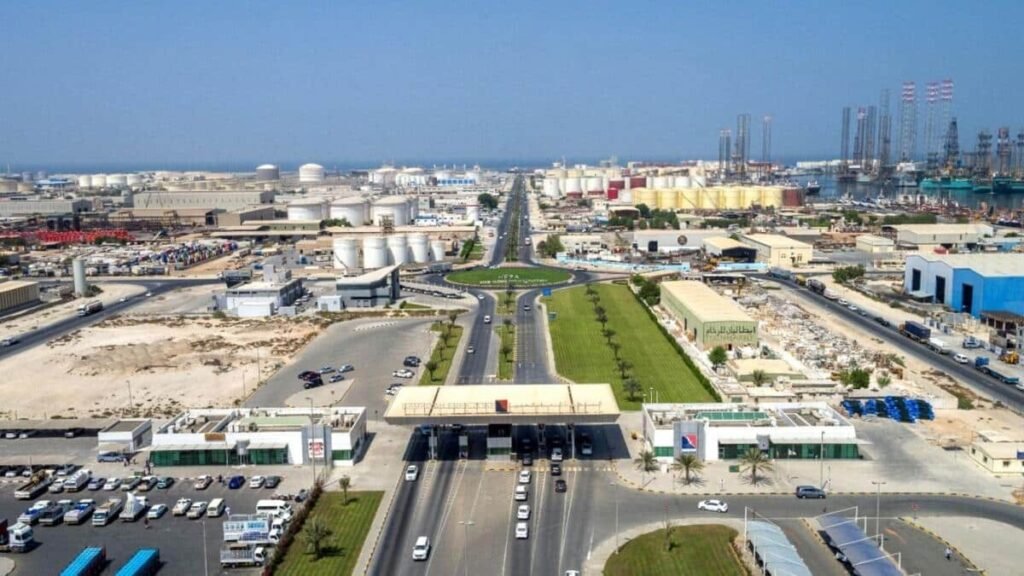
Free Zone | Emirate | Industry Focus | Key Benefit |
Jebel Ali Free Zone (JAFZA) | Dubai | Logistics, Trade | Access to Jebel Ali Port |
DMCC | Dubai | Commodities, Trade | Flexible licensing |
Dubai Internet City | Dubai | Technology, IT | Tech ecosystem |
Dubai Media City | Dubai | Media, Creative | Networking opportunities |
DIFC | Dubai | Finance, Legal | Robust regulatory framework |
ADGM | Abu Dhabi | Finance, Fintech | Tax-neutral environment |
KIZAD | Abu Dhabi | Manufacturing, Logistics | Cost-effective setups |
SAIF Zone | Sharjah | Trading, Industrial | Affordable licensing |
RAK Free Zone | Ras Al Khaimah | Manufacturing, SMEs | Low operational costs |
Fujairah Free Zone | Fujairah | Maritime, Trading | Strategic Gulf of Oman location |
How to Choose the Best Free Zone in UAE for Your Business:
Selecting the “best free zones in UAE for startups” or established businesses can be daunting with so many options. Start by defining your business goals—industry focus, budget, and growth plans. For instance, tech startups thrive in Dubai Internet City, while traders prefer JAFZA’s port access.
Consider these factors:
- Industry Alignment: Choose a free zone matching your sector (e.g., Dubai Media City for creative businesses).
- Cost: Compare setup fees, licensing costs, and operational expenses. RAK Free Zone is budget-friendly, while DIFC is premium.
- Location: Proximity to ports, airports, or business hubs matters. KIZAD offers logistical advantages.
- Visa Quotas: Check visa allowances for staff and dependents.
- Regulatory Ease: Look for streamlined processes, like DMCC’s flexible licensing.
What are Out-of-Scope Supplies?
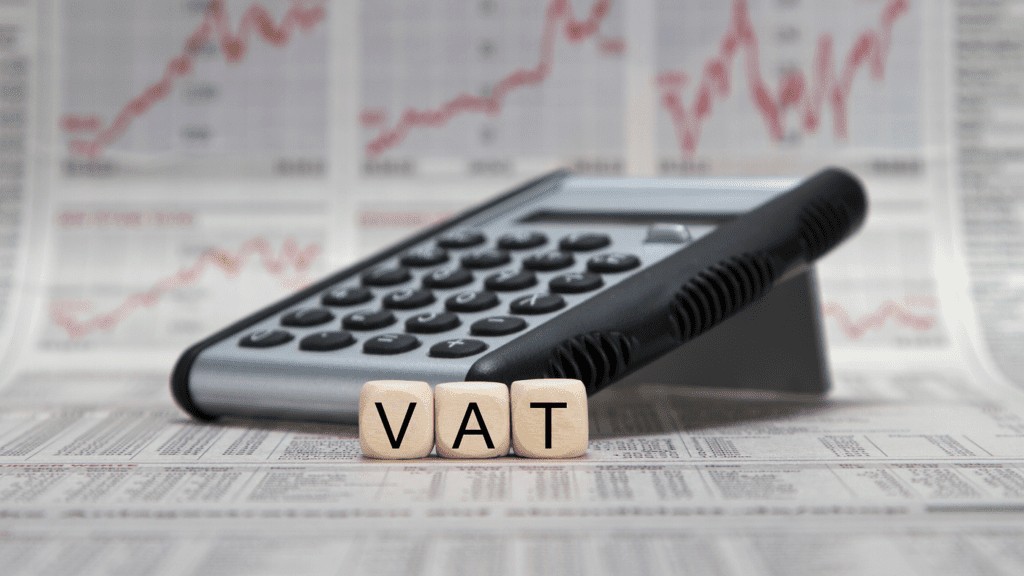
Out-of-scope supplies refer to transactions outside the jurisdiction of VAT regulations, meaning they are neither taxed nor reported for VAT purposes. Examples include sales of goods or services outside the UAE, transactions between entities in free zones with specific VAT exemptions, and certain non-business activities. No VAT is charged or reclaimed on out-of-scope supplies.
In contrast, zero-rated supplies are taxable but subject to a 0% VAT rate. This means no VAT is charged to the consumer, but businesses can reclaim VAT on inputs related to these supplies. Zero-rated supplies include exports and certain international services, unlike out-of-scope supplies which are entirely outside VAT regulations.
VAT Registration For Zero-rated Supplies
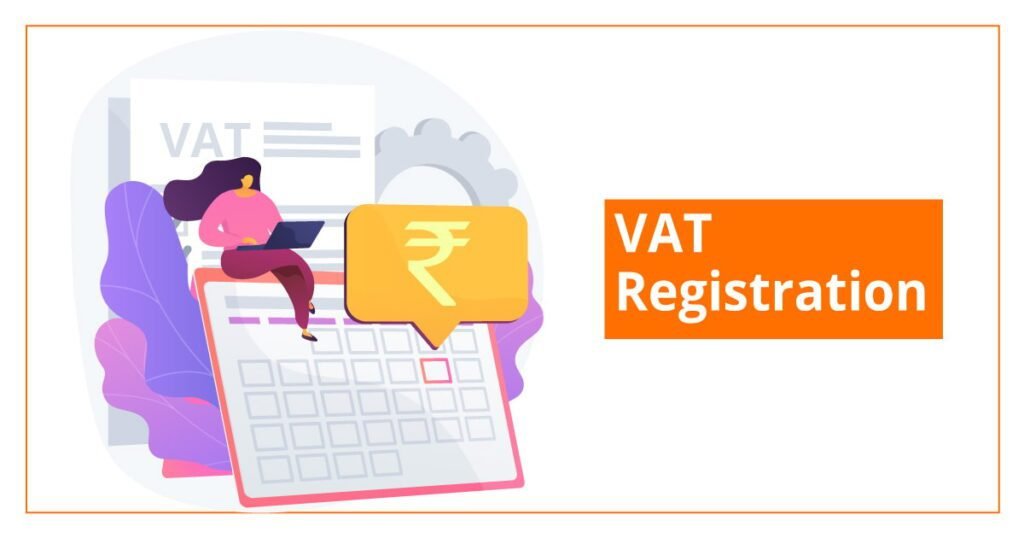
The VAT registration process for zero-rated supplies in the UAE involves several specific steps to ensure compliance with the regulations set forth by the Federal Tax Authority (FTA). Here’s how it works:
Key Regulations:
1. VAT Exemption for Goods:
- Within Designated Zones: Supplies of goods within the Designated Zones are typically exempt from VAT, provided the goods are not released for local consumption. This means that transactions between businesses operating within these zones are generally VAT-free.
- Import and Export: Importing goods into Designated Zones and exporting goods from these zones to outside the UAE are also generally VAT-exempt, promoting ease of trade.
2. VAT on Services:
3. Transfer of Goods:
4. Customs and Logistics:
- Customs Regulations: Goods entering and leaving Designated Zones are subject to customs regulations, but the VAT treatment follows the special rules applicable to these zones.
- Logistics Facilities: Businesses within Designated Zones often benefit from advanced logistics facilities that streamline the movement of goods, supporting the VAT exemption rules.
Tax Groups in Designated Zones
Tax grouping allows businesses to form a single taxable entity for VAT purposes. This can simplify VAT administration and potentially reduce VAT liabilities.
Eligibility: Businesses within Designated Zones can form tax groups if they meet the general criteria set by the FTA. This includes being established in the UAE and being under common control. By forming a tax group, businesses can file a single VAT return, reducing administrative burdens. In addition to this, transactions between group members are disregarded for VAT purposes, potentially leading to cash flow advantages.
Conditions: The UAE government requires that all members of the UAE designated zone:
- Must be VAT-registered.
- There must be a common control relationship between the entities.
In conclusion, the designated areas called free zones in the UAE offer valuable tax benefits and specialized facilities tailored to various industries, providing unique opportunities for growth. Whether you’re a tech startup in Dubai Internet City or a logistics company in Jebel Ali Free Zone, understanding the specific advantages of each zone is crucial. Tulpar Global Taxation can assist you in navigating these complexities, ensuring compliance with VAT regulations, and maximizing the benefits of operating within these zones. Our expertise in tax planning and strategic advice will help you optimize your business’s position in the UAE’s dynamic economic landscape.
A Designated Free Zone is a specific Free Zone recognized under UAE VAT law for special VAT treatment on goods. These zones are treated as outside the UAE for VAT purposes on qualifying goods only. This status applies only when strict legal conditions are met.
No, Designated Free Zones are not fully VAT-exempt. The VAT benefit mainly applies to qualifying goods under customs control. Services supplied in Designated Free Zones are generally subject to 5% VAT.
Dubai has several Designated Zones, including JAFZA, DAFZ, Dubai South, and others approved by the FTA. These zones are commonly used for logistics, trading, and storage activities. VAT benefits apply only if conditions are satisfied.
In Sharjah, Hamriyah Free Zone and SAIF Zone are classified as Designated Zones. These zones are popular for manufacturing, trading, and export-based businesses. VAT treatment depends on the nature of transactions.
VAT may not apply if goods are supplied within the same Designated Zone and remain under customs control. Once goods leave the zone or are released to the Mainland, VAT becomes applicable. Documentation is critical to support VAT treatment.
Yes, services such as rent, consultancy, management, and maintenance are generally subject to 5% VAT. Many businesses incorrectly assume services are VAT-free in Designated Zones. This misunderstanding often leads to FTA penalties.
Yes, VAT registration depends on taxable turnover, not Free Zone status. Many Designated Zone businesses are required to register and file VAT returns. Being in a Designated Zone does not remove VAT compliance obligations.
When goods are supplied to the UAE Mainland, VAT becomes applicable at the standard rate. The transaction is treated as a taxable supply. Proper invoicing and customs documentation are required.
Common mistakes include incorrect VAT exemption assumptions, poor documentation, and wrong invoice treatment. Many businesses fail to distinguish between goods and services VAT rules. These errors frequently trigger FTA audits.
Professional VAT advisors help assess transactions, review documentation, and ensure FTA compliance. Working with Tulpar Global Taxation helps businesses avoid penalties and correctly apply Designated Zone VAT rules.
